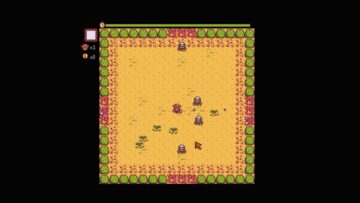“What class to play” is the first and most important question for you to ask yourself when freshly starting an ARPG like Last Epoch. And with Last Epoch’s Mastery specialization system for each of its classes, knowing what you want to play before you boot up the game is crucial.
In this Last Epoch guide, we’ve outlined a summary of all classes and Masteries. We’ve also included details of how those Masteries function, to help you choose what class to play in Last Epoch.
All classes in Last Epoch
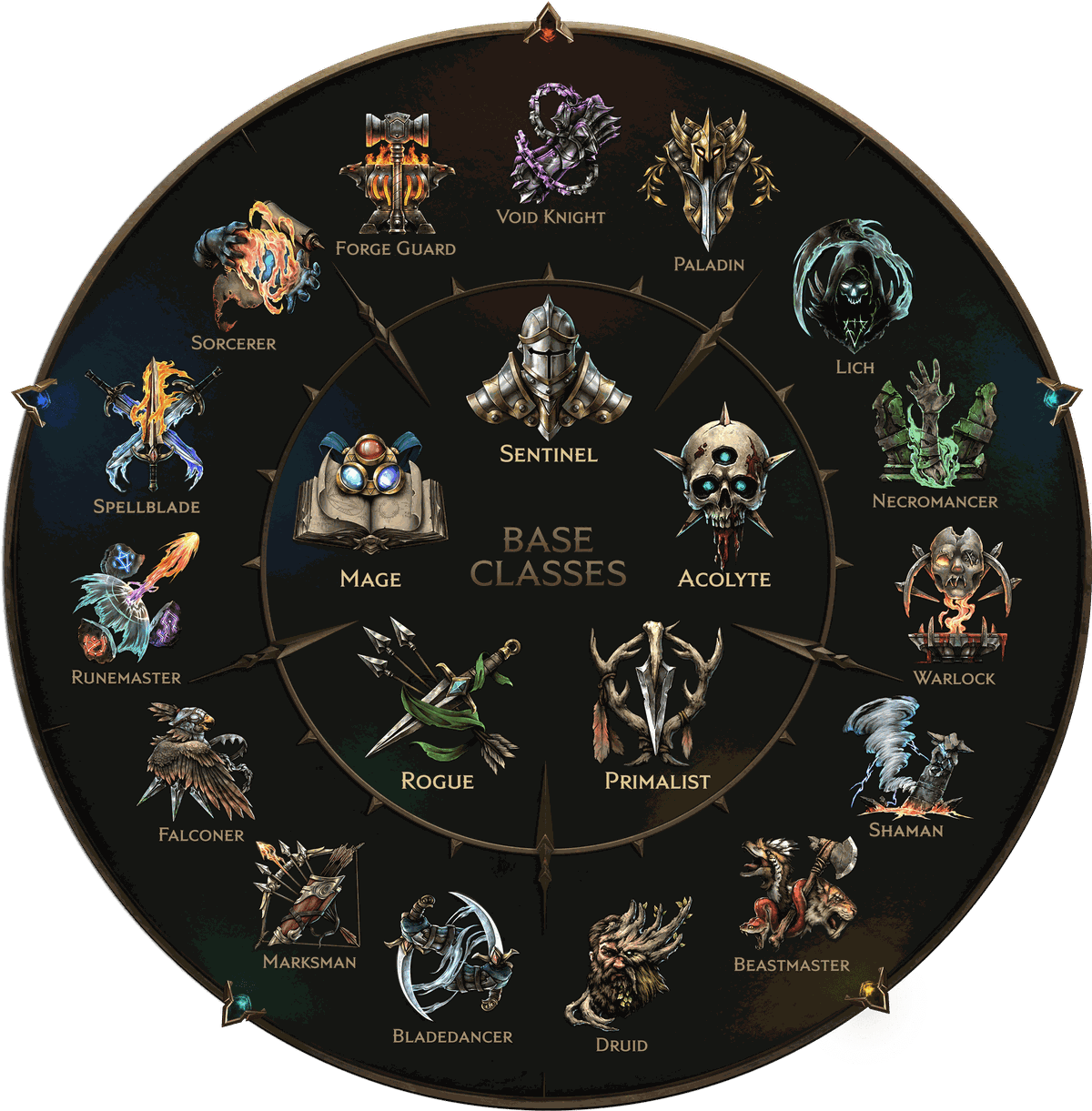
Image: Eleventh Hour Games
The class system in Last Epoch is a little complex if you’re used to just picking a class in your game and rolling with it until you reach max level. In Last Epoch, you’ll select your base class from five classes: Sentinel, Acolyte, Primalist, Rogue, or Mage.
All Mastery classes in Last Epoch
Once you invest 20 points in your main class tree and complete enough of the main story quest, you’ll gain access to the three unique Mastery options for your class — essentially subclasses. They are as follows:
- Acolyte: Lich, Necromancer, Warlock
- Mage: Runemaster, Spellblade, Sorcerer
- Primalist: Shaman, Beastmaster, Druid
- Rogue: Bladedancer, Marksman, Falconer
- Sentinel: Forge Guard, Void Knight, Paladin
Think of Masteries like a specialization route that you want to take your character, rather than a new class entirely. The bones of your original class will still be there once you choose your Mastery.
What class is best for you in Last Epoch?
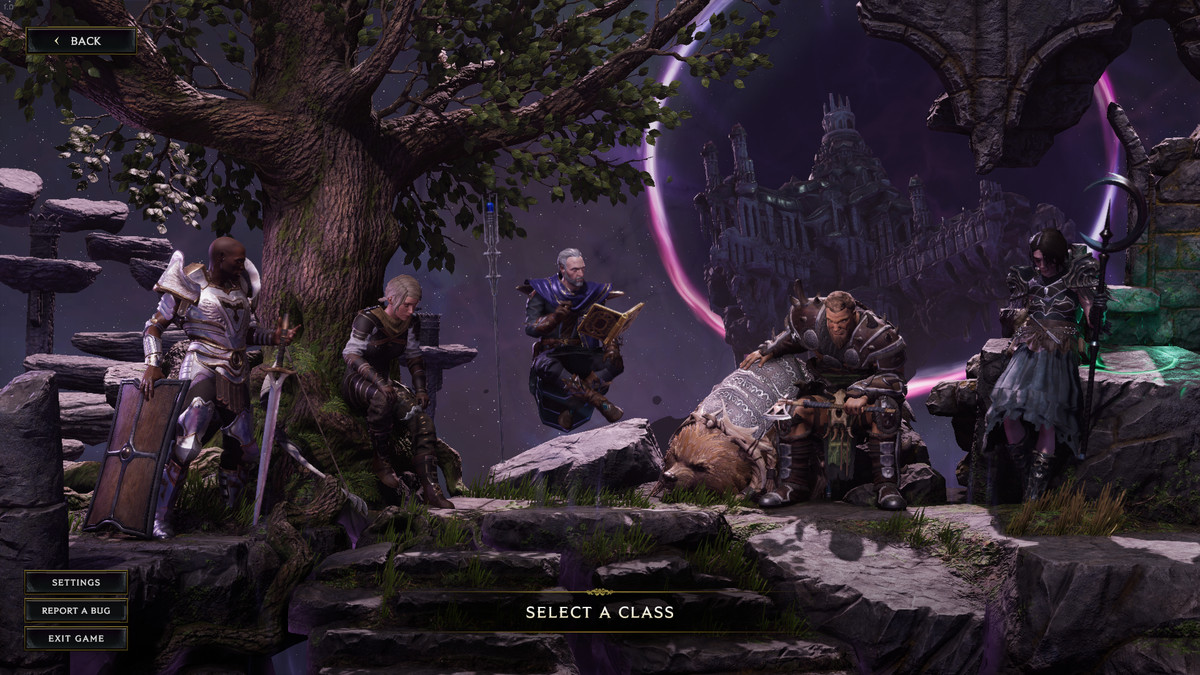
Image: Eleventh Hour Games via Polygon
Last Epoch features five classes, and each class has three distinct playstyles. It’s important to remember that once you choose a class, that choice is permanent and you’ll need to make a new character if you want to try something else. Your Mastery selection is also permanent, so choose wisely.
In general, provided you’re familiar with the genre, the classes in Last Epoch are similar to classes from other ARPGs, MMOs, and TTRPGs. Considering what you gravitate toward in other RPGs (like Diablo 4, Path of Exile, World of Warcraft, or even Dungeons & Dragons) can inform the class you should play in Last Epoch.
- If you’re a fan of Witches, Warlocks, Sorcerers, or Necromancers in other RPGs, the Acolyte could be a great pick for you in Last Epoch.
- If you like classes like Wizards, Sorcerers, Shamans, or Elementalists in other RPGs, you’ll find something to enjoy with the Mage.
- If you’re a fan of Barbarians, Fighters, Druids, Rangers, or Shamans in other RPGs, you can’t go wrong with the Primalist.
- If you’re a fan of Rangers, Assassins, Demon Hunters, Hunters, or Engineers in other RPGs, consider going with the Rogue.
- If you’re a fan of Warriors, Paladins, Crusaders, or Fighters in other RPGs, Sentinel is definitely worth your time.
If you’re still unsure which class to play in Last Epoch, below, we’ve gone into further detail on each of the five classes, including extensive details on all three Masteries for each class.
Acolyte (Lich, Necromancer, Warlock)
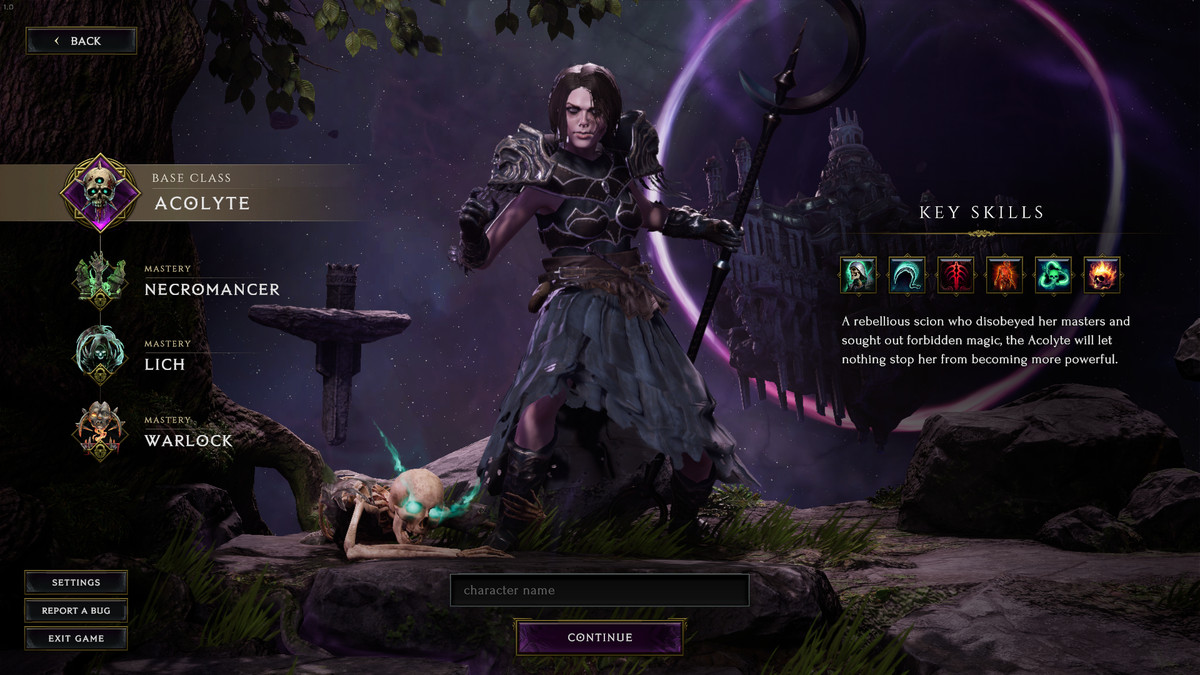
Image: Eleventh Hour Games via Polygon
The Acolyte is a spellcaster, much like the Mage class, but there are some pretty significant differences between the two — mostly in that the Acolyte uses what some might consider “evil” magic. The playstyle for the Acolyte is a mix between managing undead summons and casting spells.
The Lich Mastery is all about playing with your own HP to deal lots of damage to your targets. You can poison yourself to do even more poison damage to your enemies, or you can turn into a giant reaper and cleave down enemies in exchange for some health. It’s a risk-vs.-reward playstyle.
The Necromancer Mastery is pretty straightforward. Your goal is to summon an army of undead minions to do your bidding for you, overwhelming your enemies. There are, of course, more nuanced things you can do to keep your playstyle active, like sacrificing your minions to deal damage or combining them together into one super minion.
The Warlock Mastery is your straight-up demonic, necrotic wizard subclass. You’re able to throw out bolts of death magic or open fissures in the ground to destroy your targets. As a Warlock, you trade having a unique gimmick for the ability to blast targets with spell after spell after spell.
Mage (Runemaster, Spellblade, Sorcerer)
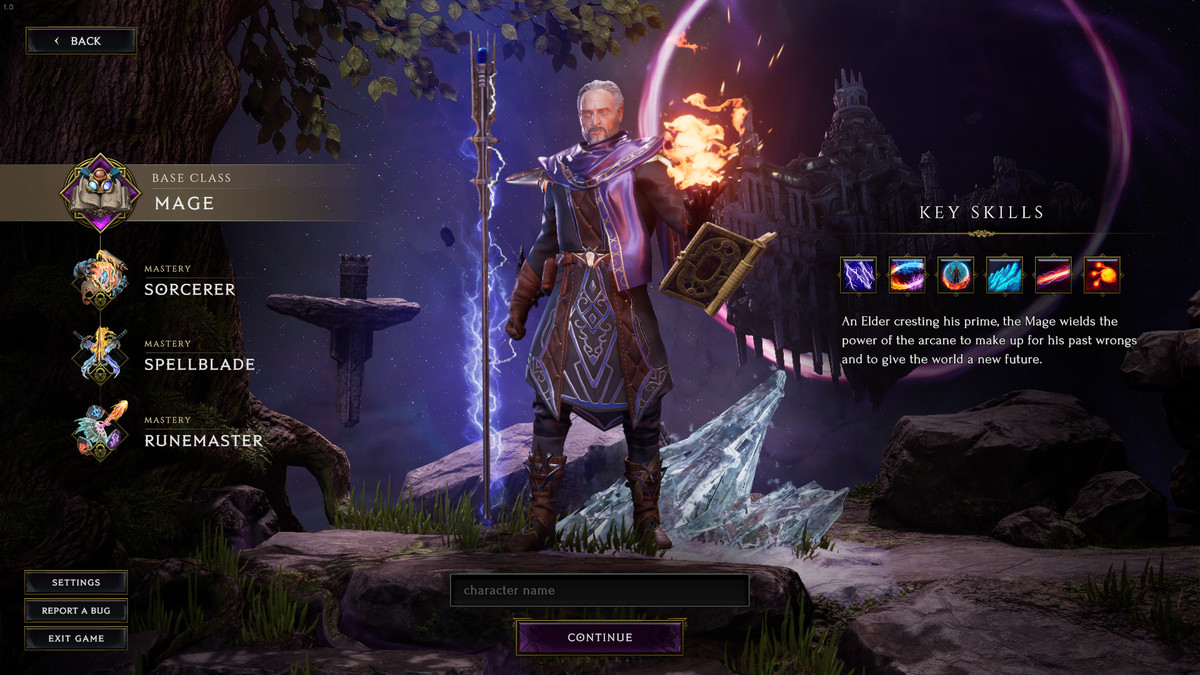
Image: Eleventh Hour Games via Polygon
The Mage is a spellcaster like the Acolyte. However, the Mage is more about slinging spells that tap into the arcane and the elements found in our world. Most spells deal with fire, ice, or lightning. Ranged spellcasting is the primary playstyle here. However there are options to get into melee if that’s your preference.
The Runemaster Mastery is an interesting specialization that allows you to combine your skills together to create powerful runes via Runic Invocation. By casting your spells in a specific order, you can create interesting new magic, which gives almost an improvisational feeling to the class.
The Spellblade Mastery sees you get a little bit closer to the action than you might imagine on a spellcaster like the Mage. Most of your specialized skills affect your immediate area, and you’re able to imbue your weapons with magical power, enhancing your sword to become a spellcasting weapon.
The Sorcerer Mastery sees you lean even harder into the Mage’s elemental stuff. You can cast giant flaming meteors, or ice missiles from your fingertips. You can even create a black hole that freezes your enemies as it sucks them into its center.
Primalist (Shaman, Beastmaster, Druid)
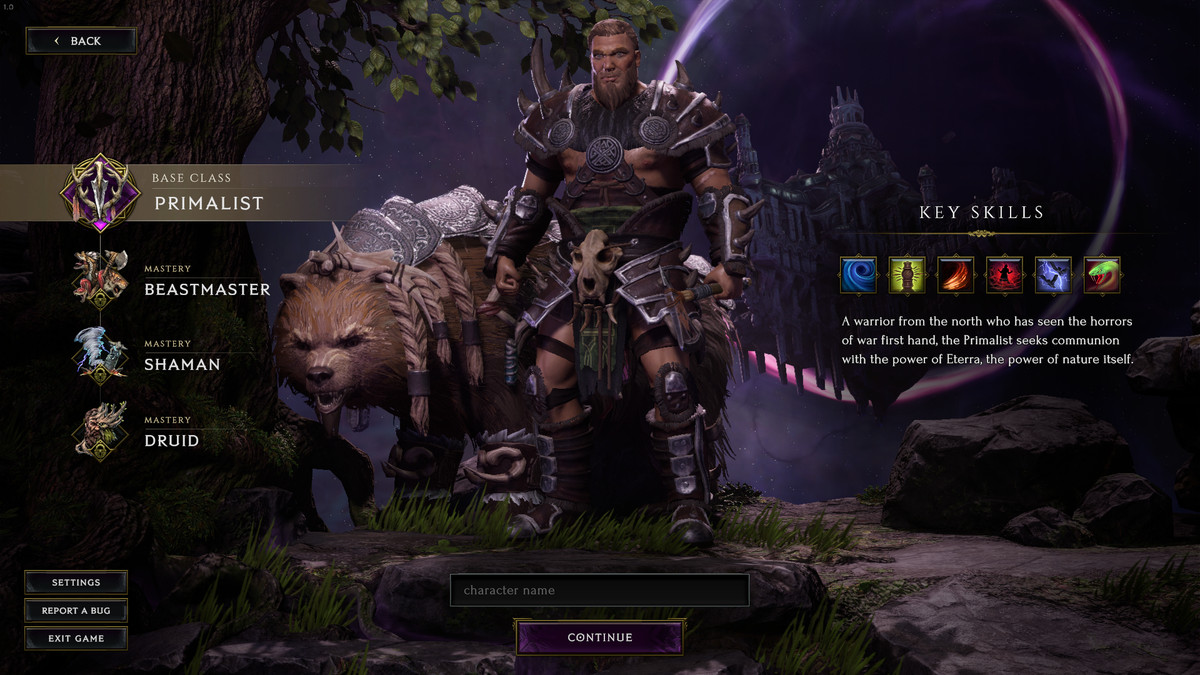
Image: Eleventh Hour Games via Polygon
The Primalist is an interesting mix between a brutal, up-close fighter and things you might associate with a more natural spellcaster or ranged character in another game. The playstyle here is a mix between managing summons like pets or totems and melee combat.
The Shaman Mastery is all about summoning totems (unmoving turrets, essentially) and casting elemental magic to decimate the battlefield. This is a spell-focused version of the Primalist, but one that still sees you engaging foes in their faces.
The Beastmaster Mastery allows you to summon more pet creatures to your side to fight with you. These pets both follow you around and attack your targets while also offering active abilities that you can use to occasionally increase their power. In addition to the basic wolf pet you can get as a Primalist, you’ll gain access to more animals like bears or even a raptor.
The Druid Mastery is all about shape-shifting for different situations. You can change your form into a werebear to gain powerful bear-like powers, making you a melee powerhouse. Or you can become a tree person to increase your spellcasting prowess.
Rogue (Bladedancer, Marksman, Falconer)
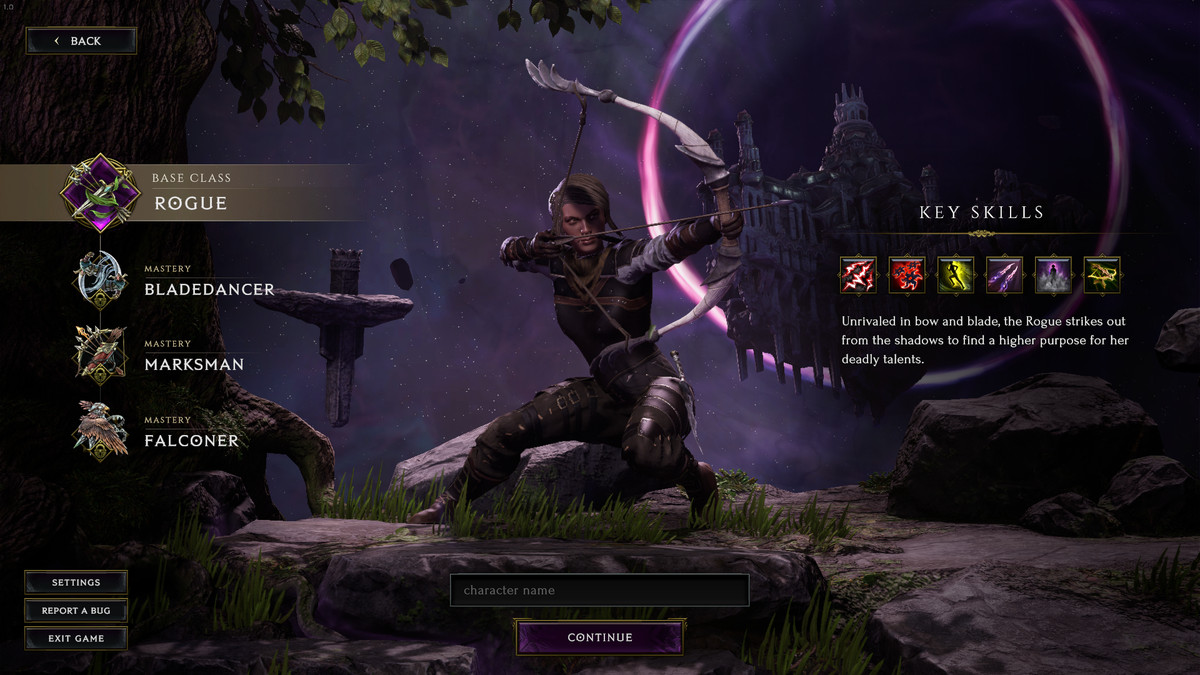
Image: Eleventh Hour Games via Polygon
The Rogue is that classic bow- and dagger-wielding class that offers a mix between subterfuge and sniping. The playstyle it offers is an option between up-close dagger combat and long-range bow combat.
The Bladedancer Mastery is going to be your melee-focused Rogue, with skills that let you dash out of the shadows, stab into enemies with daggers to deal massive damage, and then get out of the fray once again. It’s a class that can deal high damage but requires you to be in the danger zone on a class that doesn’t have as much HP as a Primalist or Sentinel.
The Marksman Mastery is your classic archer class, and gives you the opportunity to deal decent damage from a safe distance. All of your skills will require you to use a bow, and you’ll need to position yourself properly to both stay safe and plunk away at your targets.
The Falconer Mastery is a bit different from the other two specialized Rogue classes. It grants you the falcon pet, which has its own set of skills for you to torment your enemies with. But its key skills — those highlighting the falcon — don’t require you to use a bow or dagger like the other two Masteries, giving you some flexibility and a bird friend to adventure with.
Sentinel (Forge Guard, Void Knight, Paladin)
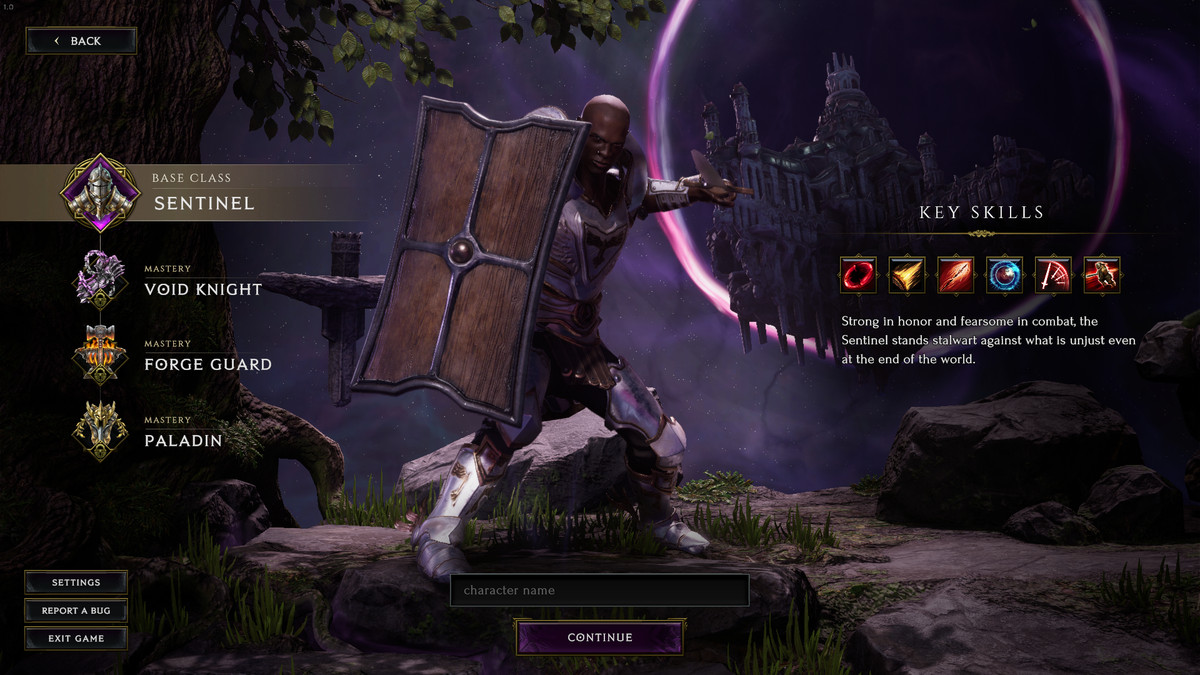
Image: Eleventh Hour Games via Polygon
The Sentinel is going to fulfill all of your “Sword and Board” fantasies. This playstyle is going to be primarily melee based, with an increased focus on defense.
The Forge Guard Mastery is about summoning the power of the forge to both defend yourself and dish out powerful fire damage. There’s a summoner quality to this Mastery that makes it a bit different from the other Sentinel classes, as you can summon magical armor, weapons, or shields to follow you around.
The Void Knight Mastery is the sorcerer-knight class who uses void magic to decay and erase their foes from time. The Void Knight’s skills highlight both movement and control, allowing you to banish foes, teleport yourself, or block off certain areas with orbs of destruction.
The Paladin Mastery is a classic archetype. The Paladin here offers a holy knight playstyle all about smiting your foes while keeping yourself and your allies safe. Many Paladin skills have a “hurt the enemy while helping me and my friends” support combo. Your Judgment skill is capable of consecrating the ground to damage enemies and heal allies. Smite has a similar effect but with a bolt of holy power from the sky.
- SEO Powered Content & PR Distribution. Get Amplified Today.
- PlatoData.Network Vertical Generative Ai. Empower Yourself. Access Here.
- PlatoAiStream. Web3 Intelligence. Knowledge Amplified. Access Here.
- PlatoESG. Carbon, CleanTech, Energy, Environment, Solar, Waste Management. Access Here.
- PlatoHealth. Biotech and Clinical Trials Intelligence. Access Here.
- Source: https://www.polygon.com/guides/24078379/last-epoch-class-mastery-best-what-to-play
- 09
- 20
- 2000
- 2035
- 22
- 23
- 30
- 41
- 54
- 67
- a
- abilities
- ability
- able
- About
- access
- Action
- active
- ADDITION
- Adventure
- affect
- after
- again
- All
- Allowing
- allows
- almost
- also
- an
- and
- animals
- Another
- ARE
- AREA
- areas
- Army
- around
- as
- ask
- associate
- At
- attack
- away
- base
- based
- basic
- Battlefield
- BE
- Bears
- become
- before
- below
- BEST
- between
- bird
- Bit
- Black
- BLAST
- block
- Bolt
- bones
- both
- but
- by
- CAN
- capable
- casting
- Center
- certain
- change
- character
- choice
- choose
- class
- classes
- Classic
- closer
- combat
- combine
- combining
- complete
- complex
- Consider
- considering
- Control
- could
- course
- create
- creatures
- crucial
- Dagger
- damage
- Danger
- Dash
- deal
- death
- Defense
- definitely
- destroy
- detail
- details
- differences
- different
- dish
- distance
- distinct
- do
- down
- each
- Effect
- elements
- engaging
- enhancing
- enjoy
- enough
- entirely
- Essentially
- even
- exchange
- extensive
- faces
- falcon
- familiar
- fan
- Features
- fight
- find
- fingertips
- Fire
- First
- five
- Flexibility
- Focus
- follow
- follows
- For
- forge
- form
- found
- friend
- from
- Fulfill
- function
- further
- gain
- game
- Games
- Gaming
- General
- Genre
- Get
- giant
- gives
- Giving
- go
- goal
- going
- gone
- grants
- great
- Ground
- guard
- guide
- harder
- has
- Have
- having
- Health
- help
- helping
- here
- High
- Highlight
- highlighting
- hole
- holy
- hour
- How
- however
- HP
- HTTPS
- ICE
- if
- imagine
- IMMEDIATE
- important
- in
- Included
- Including
- Increase
- increased
- inform
- interesting
- into
- invest
- Is
- IT
- ITS
- Judgment
- just
- keep
- keeping
- Key
- knowing
- last
- let
- Level
- lightning
- like
- Little
- lots
- Magic
- main
- make
- MAKES
- Making
- managing
- many
- massive
- mastery
- max
- me
- Melee
- might
- missiles
- mix
- more
- most
- mostly
- movement
- much
- my
- Natural
- need
- New
- nuanced
- of
- off
- offering
- Offers
- on
- once
- One
- open
- Opportunity
- Option
- Options
- or
- Orbs
- order
- original
- Other
- our
- out
- outlined
- overwhelming
- own
- person
- Pets
- pick
- picking
- plato
- plato data intelligence
- platodata
- platogaming
- play
- Playing
- Points
- poison
- Polygon
- position
- power
- powerful
- powerhouse
- powers
- pretty
- primarily
- primary
- provided
- prowess
- quality
- quest
- question
- Rangers
- rather
- reach
- Remember
- require
- requires
- Rogue
- Rolling
- Route
- RPGs
- safe
- Screen
- sees
- select
- selection
- set
- should
- shows
- side
- significant
- similar
- situations
- skill
- skills
- sky
- SMITE
- So
- some
- something
- specialized
- specific
- spell
- Starting
- stay
- still
- Story
- straightforward
- summary
- Summons
- super
- support
- sword
- system
- Take
- Tap
- targets
- than
- that
- The
- The Game
- their
- Them
- then
- there
- These
- they
- things
- this
- those
- three
- throw
- time
- to
- together
- toward
- trade
- tree
- try
- turn
- two
- undead
- unique
- until
- up
- use
- used
- uses
- version
- via
- want
- warriors
- weapons
- What
- Wheel
- when
- while
- WHO
- will
- wisely
- with
- Wolf
- world
- worth
- wrong
- you
- your
- yourself
- zephyrnet
- zone









